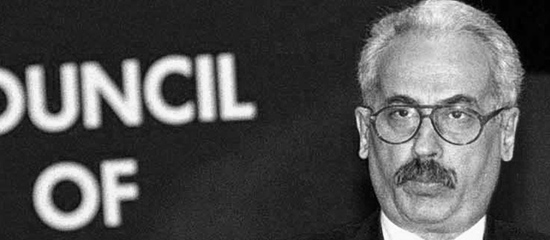Radu
Vasile
Prime Minister of Romania
Speech made to the Assembly
Monday, 20 April 1998

Madame President, ladies and gentlemen, dear colleagues, it is with deep emotion – which you will all understand, I am sure – that I take the floor here today.
First of all, I wish to express my gratitude to your President, Leni Fisher, and my former colleagues on the Bureau, for allowing me, after my appointment just a few days ago as Prime Minister of Romania, to say a few brief words to you as a message of farewell and also of hope.
As you are aware, any new phase in the career of a politician means giving up what has been and making a new start, reaching out towards what is to come, something which one hopes will come about in the foreseeable, or at least not too distant, future.
The government which the President of Romania has just called upon me to lead is making its debut under conditions whose difficulty it would be vain, not to say unrealistic, to conceal. The governmental programme which I had the honour of submitting to Parliament at my investiture last week could be described metaphorically as a one-way road towards democracy and the market economy. The key aims of this programme are as follows: speeding up institutional reform, reorganising and modernising industry and agriculture, intensifying the process of privatisation in order to provide a decent standard of living for the entire population in a context of sustainable economic development and a true spirit of social solidarity and, lastly, introducing measures designed to give young people new confidence in their future.
But above all I wish to stress that the chief thrust of this programme is based on two main approaches, two major objectives designed to guide its action in the coming years. Firstly, ensuring that Romania occupies a dignified position among the developed democracies of Europe, which calls especially for continuing efforts to integrate my country fully into transatlantic structures as the logical culmination of its drive to become firmly anchored to the great family of western democracies. Secondly, conducting far-reaching reform of Romanian society which a view to its full assimilation of moral, democratic and humanistic values.
The affirmation of these principles of universal scope brings us straight back to the system of values around which our Organisation has been built. With its accession on 7 October 1993, Romania endorsed the principles of our own pluralist democracy, observance of human rights and the rule of law, and undertook to reform its political and institutional system accordingly. The majority of these commitments have, as you know, already been honoured, even if progress with certain aspects still has to be made. On 24 April 1997, almost one year ago to the day, our Assembly acknowledged these efforts by adopting Resolution 1123 and Recommendation 1326 which brought to a conclusion the monitoring procedure with regard to Romania. This decision had a wide impact on Romanian public opinion, acting as a powerful stimulus to everyone, government and citizens, to keep moving in the right direction.
In calling attention to these facts which are known to us all, I wish to take the opportunity, in my capacity as Prime Minister, to renew solemnly the commitments undertaken and above all to assure you that everything that still remains to be done will be done and that, under my leadership, the remaining commitments, all the commitments freely entered into, will be scrupulously complied with.
For we Romanians still regard the Council of Europe as the epitome of democracy, the Organisation which, thanks to its lucid and vigilant action, was to enable us to rejoin the family from which we were brutally separated for forty-five years. “He who has seen much may remember much,” runs the fable. As a member of this Assembly since 1997, I have indeed seen a great deal in your company; I also hope that I have taken to heart at least the essentials: some measure of political courage – indeed a large measure; practical experience that is extremely useful for the representative of an emergent democracy and, above all, tolerance and respect for others, qualities which sometimes enable us to preach by example. In the tough task ahead of me, in which I will need all my capacities, experience and my conscience – which is profoundly attached to the values which we all share in the House – I trust that I will not disappoint you or my fellow citizens, even if I have to resign myself to accepting the- words of Anatole France: “There is no such thing as popular government, for to govern,” as he said disenchantedly, “means to cause discontent...”
At all events, I will have learnt among you and with you what it means to enter into true dialogue, one where, as President Constantinescu recently put it, “instead of trying to teach one another lessons, we might learn from one another”.
I hope that I have not overstepped the time limit generously allotted to me and that I have not unduly delayed the official opening of our proceedings which, as always, should help to build the Europe of which Montesquieu already dreamed when he declared, with visionary optimism: “Europe is a state made up of several provinces.” But we all know that moulding the kind of Europe that we want is a very lengthy undertaking... (applause)
THE PRESIDENT
Thank you very much Prime Minister, colleague and former Vice-President. All the best wishes of the Assembly; we will be with you in your future endeavours. We wish you the best for yourself, for your government and, of course, for your country.
